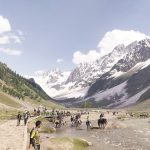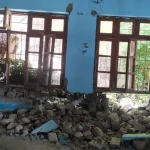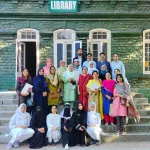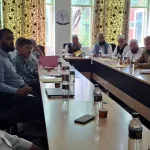THE SILENT ANCHOR
In the chorus of human relationships, few are as complex, understated, and transformative as the bond between a father and his child. While Mother’s Day arrives clothed in sentimentality and universally acknowledged warmth, Father’s Day often passes like a whisper—gentle, half-noticed, and quiet in its celebration. Yet within that quietude lies a strength that is neither ornamental nor obsolete. It is time we hold a mirror to the idea of fatherhood, not merely to celebrate it, but to understand how it has evolved, how it is evolving, and how, perhaps, it still longs to be redefined.
Father’s Day, celebrated on the third Sunday of June, is not just a ceremonial nod to tradition. It is a question wrapped in garlands: who is the father today? And what does he carry within the folds of his silence?
For centuries, the image of the father stood etched in stone—provider, protector, patriarch. He was the one who toiled beyond the home, who bore the harshness of the world and brought back its fruits to lay at the hearth. Emotions were luxuries he could not afford, tenderness a territory he dared not enter. Children approached him with measured steps, reverent and distant. Love was understood, not spoken; support was implied, not displayed.
But the winds of time have blown softly yet steadily across the plains of human relationships. The father of today stands not as a statue, but as a human being—capable of warmth, vulnerability, and gentle strength. He may still work long hours, but he also changes diapers. He may still carry the financial weight of the household, but he also sings lullabies and kneels beside a schoolbag, tying a shoelace with quiet care.
In this new narrative, the father is not retreating from his role; he is expanding it.
This transformation is not born out of whim but necessity. In a world increasingly conscious of emotional health, gender equity, and inclusive parenting, fatherhood can no longer be bound by the archetypes of the past. It must adapt, or it risks irrelevance. And adapt it has—though not without its growing pains. Today’s father is expected to be present in every sphere: earning, nurturing, guiding, and listening. This multidimensional demand has created a more rounded, if more burdened, paternal figure.
In the contours of urban landscapes, this shift is visible. Fathers pushing prams in public parks, wearing baby carriers, attending parent-teacher meetings, sharing bedtime routines, and even choosing to stay at home while their partners pursue careers—these are no longer exceptions. They are emblems of a society trying to unlearn and relearn the grammar of gender roles.
Yet, beneath this celebration of the modern father lies a quieter truth: many are learning without teachers. Most fathers today were raised by men who never wept in public, who did not hug, who rarely uttered the words “I love you.” To become something one has never seen is not evolution—it is quiet courage. And this courage deserves its space in the dialogue around parenting.
Popular culture, too, is beginning to reflect this shift. Where once the father in films and literature was a stern disciplinarian or a noble martyr, he is now a creature of shades and seasons. From flawed to nurturing, from conflicted to quietly strong, the modern father is finally being allowed his humanity. He is no longer a backdrop to the emotional lives of his children but an active participant in their unfolding stories.
In traditional societies, the process is more gradual, yet unmistakable. The patriarchal model, still dominant in many cultures, is beginning to crack—if not collapse. A father allowing his daughter to pursue sports, art, or science, a man in a remote village helping his son cook or care for a sibling, or a conservative elder beginning to understand the diverse identities of the younger generation—these are revolutions not televised, but no less radical.
Of course, not every story is one of triumph. There are fathers who remain emotionally distant, men imprisoned by their upbringing, their insecurities, or their unhealed traumas. Some walk out, some fade into silence, some impose, some oppress. But even these absences shape the narrative. A child raised by a silent father learns to read gestures; a child raised by an absent one grows into resilience, or sometimes, into yearning. The story of fatherhood is not always golden—it is real, with its shadows and silences.
And then, there are the unsung fathers. The single fathers who double up as mothers. The grandfathers who step in when life takes a parent away. The foster fathers, guardians, uncles, mentors, teachers—men who love and lead not out of duty but out of choice. Their stories rarely find space in celebratory greeting cards but deserve the pages of poetry.
The pandemic years, that strange pause in the world’s breath, deepened this shift. As homes became workplaces and time slowed, many fathers found themselves face to face with the daily lives of their children in ways they never had. They discovered not just routines, but rhythms. Laughter, tantrums, questions, silences—these became familiar music. For many, it was a time of reintroduction: not just to their children, but to themselves.
In contemporary discourse, fatherhood is no longer about control but connection. A father is not the gatekeeper of the family’s honour but its compass. He guides not with fear, but with faith. He leads not by decree, but by example. And in this lies a beauty that is quiet, steady, and powerful.
Modern masculinity, long caged in stoicism, is finally breathing. A man who weeps at his child’s pain, who sings lullabies in cracked voices, who admits his own fears, who seeks therapy, who says “I don’t know” and “I am sorry”—such a man is not weak. He is a bridge between past and future. And in becoming so, he rewrites not just fatherhood, but manhood.
But transformation is not complete without recognition. Societies must honour this changing role not just with words, but with support systems. Paid paternity leave, father-friendly workplaces, inclusive parenting resources—these are not luxuries but necessities. They enable fathers to show up, not just in moments, but in lifetimes.
Fatherhood also transcends the boundaries of blood. It lies in the heart of a man who chooses to care, to protect, to uplift. It is not confined to a biological bond but flows through love, mentorship, guidance, and consistent presence. In classrooms, on sports fields, in community centres, and in orphanages, this spirit of fatherhood breathes quietly, without demand for recognition.
There is poetry in fatherhood, though it may not always rhyme. It lies in the hand that steadies a bicycle, in the wallet photo creased at the edges, in the silent waiting outside examination halls, in the midnight drive to fetch a wayward child, in the awkward text message trying to say, “I care.”
The language of fathers is often non-verbal. It is built of small deeds, of daily rituals, of quiet sacrifices. And this language, too, is changing. More and more fathers are learning to say what was once left unsaid. “I am proud of you.” “I believe in you.” “I am here.”
Let Father’s Day, then, be a day of reflection more than ritual. Let it be a time to remember the fathers who tried, who failed, who learned, who loved in silence, who stood in shadows so their children could walk in light. Let it be a day not just of gratitude, but of conversation—about what fatherhood is, and what it could become.
For in this shifting world, the father remains a silent anchor. Not immobile, not unyielding, but steadfast. And in that steadfastness, there is grace.
So to all fathers—those present and past, near and distant, known and unknown—may this day offer not just thanks, but understanding. May it celebrate not perfection, but presence. Not grandeur, but gentleness. Not tradition, but transformation.
For the father of today is not just a figure of the past. He is a promise to the future, quietly unfolding in the laughter of children, the strength of families, and the soul of a more empathetic world.
(Author is RK columnist and can be reached at [email protected])







